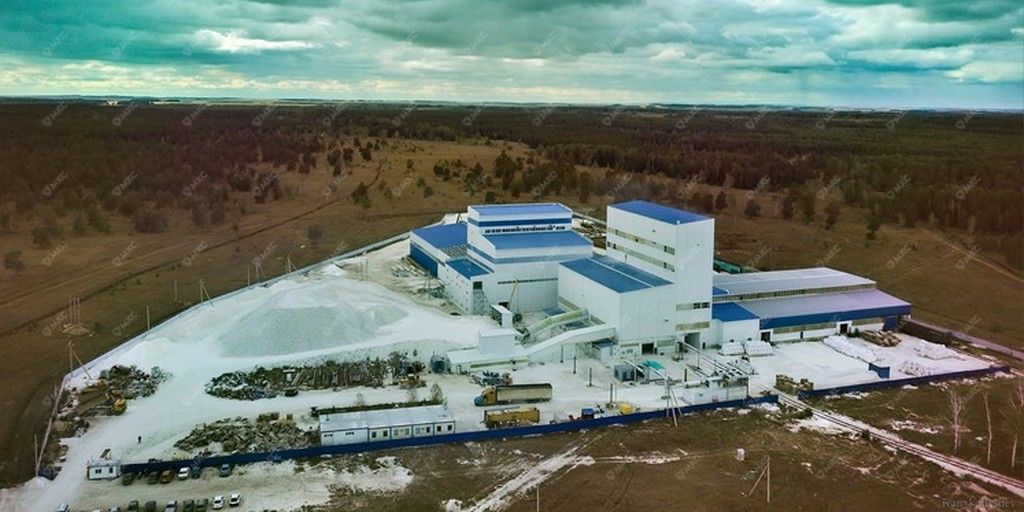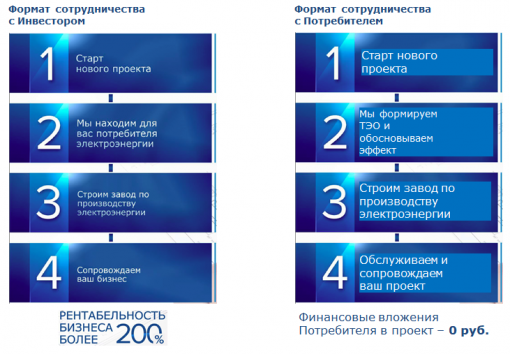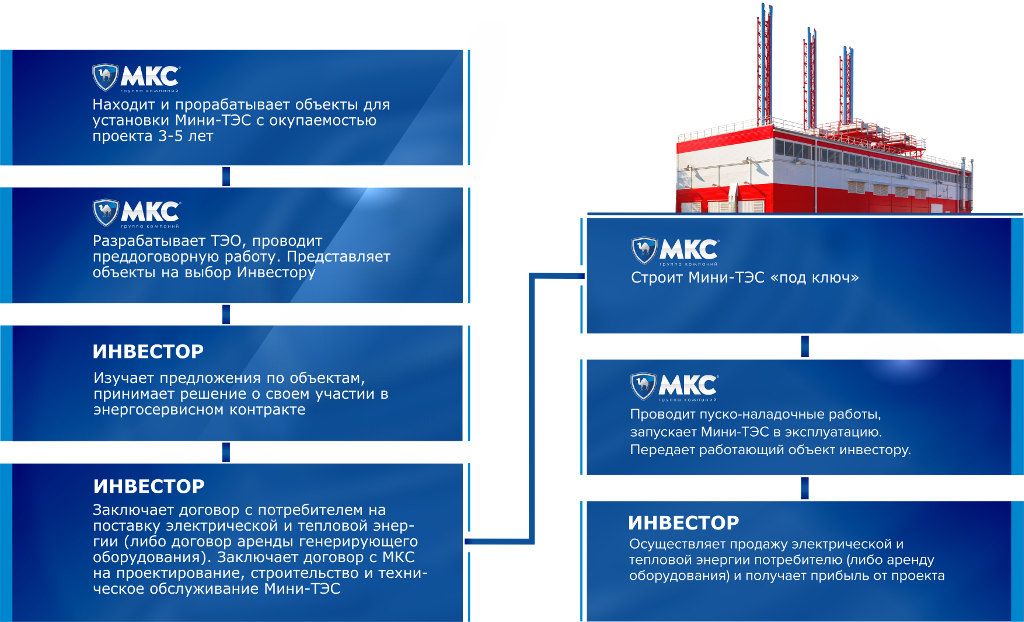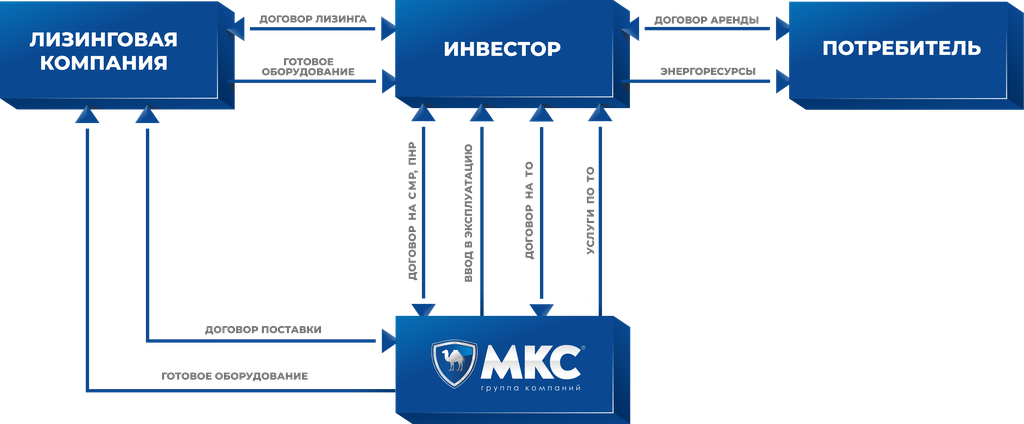What is an energy service contract
Table of contents
Initially, an energy service contract is a special form of contract implemented based on the results of an energy audit and aimed at obtaining savings in energy and operating costs. This effect is achieved through the implementation of technical measures that ensure energy saving and increase in energy efficiency.
At the same time, the format of an energy service contract implies that the contractor (energy service company or ESCO) executes this contract using its own efforts and funds (or with the involvement of contractors and investors). The return on investment is made at the expense of savings obtained by the consumer after the implementation of technical measures in relation to the initial value of energy costs.
Legislative basis
On the territory of the Russian Federation, relations on energy saving and energy efficiency improvement, as well as the procedure for concluding energy service contracts are regulated by Federal Law No. 261-FZ "On Energy Saving and Energy Efficiency Improvement and on Amendments to Certain Legislative Acts of the Russian Federation" dated 23.11.2009.
Conclusion of energy service contracts in the budgetary sphere is regulated by Federal Law № 44-FZ of 5 April 2013 year "On contractual system in the sphere of procurement of goods, works, services for state and municipal needs". The peculiarities of conclusion of energy service contracts are devoted to Part 19 19 of Article 108 108 44-FZ.
Form of implementation of the energy service contract
Thus, a state or municipal customer may conclude an energy service contract under 44-FZ based on the results of electronic tenders (auctions, tenders). How is an energy service contract concluded?
- Beforehand, a specialized organization (usually an energy service company) performs a comprehensive energy audit of the facility.
- Based on the results of the survey, the volume of energy resources consumption and costs for their purchase in the base year are recorded, and the amount of savings to be achieved as a result of implementing energy saving measures in kind and in value terms under comparable conditions throughout the contract term (usually 5 years) is determined. These data are basic for the subsequent development of the energy service contract. The contract is executed at a price determined on the basis of the calculated energy cost savings of the customer and the corresponding percentage.
The requirements to the content of an energy service contract, in particular for budgetary consumers, are regulated by the relevant legal acts: Federal Law No 261-FZ "On energy saving and on increasing energy efficiency and on amending certain legislative acts of the Russian Federation", Federal Law No 44-FZ from 5 April 2013 year "On contract system in the sphere of procurement of goods, works, services for state and municipal needs", governmental and departmental decrees.
In particular, Federal Law No. 261-FZ regulates the minimum sections that must be contained in an energy service contract:
- conditions on the amount of energy resources savings to be achieved by the energy service company as a result of the contract execution;
- terms of the energy service contract fulfillment period, which should be not less than the period of achieving the calculated and fixed value of energy resources savings;
- other mandatory conditions for this type of relationship established by regulatory legal acts in force on the territory of the Russian Federation.
On thematic resources, as well as on the websites of energy service companies working on such principles, one can find various versions of indicative documents and information, such as examples of energy service contracts, preliminary cost calculations, model programs of energy saving and energy efficiency improvement, samples of energy service contracts under 44-FZ and etc. These materials are only indicative and approximate. Refined options depend on the specific object, peculiarities of the region, industry and other conditions.
Energy service contract and other contracts in the energy sector
What kind of contracts are energy service contracts? In the general understanding of the legislation mentioned above, these are, first of all, investment contracts aimed at obtaining savings in kind by the final consumer of energy resources. The main functions of an energy service contract of this format are to implement energy saving and energy efficiency measures for a huge sector of budgetary and non-budgetary consumers with minimal risks, thus increasing the energy efficiency of the Russian economy. Moreover, energy service contracts facilitate the infusion of investments, including foreign ones, into the energy systems of Russian consumers.
In the general context, there is no difference between an energy service contract and a performance contract. Performance contracts got their name from the English analog of Energy Performance Contracting. This form of cooperation appeared at the end of the last century in the USA. Now such energy service contracts are very popular in most Western countries.
An energy service contract is fundamentally different from contracts for the supply of electricity, heat, gas and other resources. The subject of an energy service contract is not the transfer of a resource to the customer. Whereas under an energy supply contract and (or) energy supply contract, suppliers are obliged to deliver to the customer a resource of a certain quality and characteristics and provide services directly related to the supply of the resource.
According to Federal Law No. 261-FZ, certain terms and conditions of an energy service contract may be included in energy supply contracts and (or) energy supply contracts. But these contracts are not interchangeable and have completely different objectives and principles.
The difference between an energy service contract and a concession should also be understood. A concession agreement is usually a form of public-private partnership in which a private investor is involved in the creation, reconstruction or effective management of public property or provides services that are normally provided by the state or companies with state participation. As a result of the implementation of a concession, the private investor receives the right to operate or use the facility (infrastructure, building, etc.) on a reimbursable basis and receive income in its favor. Concession agreements are usually concluded for a long term (20 years or more).
Energy service contracts in the IWG
In the small-scale distributed generation (SSDG) industry, a private form of energy service contract - realization of energy supply facilities (mini-HPPs, mini-boiler houses, etc.) at the expense of ESCOs with further receipt of guaranteed profit by the Investor and guaranteed economic effect by the Consumer - has recently become very popular.
As a rule, such energy service contracts in the small-scale distributed generation industry are implemented between representatives of the business sector rather than with budget organizations. The investor is interested in prompt implementation of the project and earliest possible profit. For this purpose, there should be no legislative and bureaucratic barriers and prohibitions when forming and negotiating contracts. Moreover, the greatest economic effect for both the investor and the consumer is noted in cases of the highest initial price for energy resources, which is observed in the sector of private consumers, for whom electricity prices are unregulated, market-based. At the same time, budgetary consumers, population and equivalent categories of consumers receive electricity at preferential regulated tariffs.

Types of energy service contracts in the IWG
The essence of energy service contract implementation in the IWG industry is always the same - the Investor (ESCO) implements a turnkey energy supplying facility (mini-HPP) for the consumer using its own or borrowed funds. Moreover, the ESCO bears all operational costs for the operation of this facility during the term of the energy service contract.
There are usually two forms of energy service contract offered to consumers:
- Direct energy supply contract - the energy service company sells turnkey mini-HPPs and then sells the generated electricity and heat to the consumer at a discount relative to the prices and tariffs of energy supplying organizations or at another agreed price. This scheme is transparent, but has a number of organizational peculiarities: the need to conclude several additional contracts in addition to the supply - land lease agreement, gas supply agreement, obtaining technical conditions, limitation of the installed electric capacity of the generating facility without connection to the wholesale electricity and capacity market system, etc. etc.
- Generating equipment lease agreement - the energy service company realizes a turnkey mini-HPP and then leases it to the consumer. This scheme is the easiest to implement, there is no need for additional contracts and documents, the lessee (consumer) simply pays the agreed rental cost of the equipment under one contract. The lease payment can be based on a discount against prices and tariffs of energy supplying organizations, on the cost of energy resources production or on another method of the Investor's choice. At the same time, during the entire term of the lease agreement (energy service contract) the lessor (investor, ESCO) carries out maintenance and operation of the generating facility by its own or hired forces.
Format of cooperation
The MKS Group of Companies has the ability to both independently implement energy service contracts as an energy service company and attract investors, acting as an aggregator and operator of contract implementation. In this regard, a simple and intuitive format of cooperation has been developed for working with both the investor and the consumer.

Energy service contracts in the construction of own generation facilities are of high interest both to potential investors as a highly profitable type of business, and to consumers as a real opportunity to make savings and modernize energy supply systems;
The main premise of energy service contract implementation is a mutually beneficial form of cooperation between the investor (ESCO) and the consumer:
- The investor only finances the project and makes a profit.
- The consumer receives an economic benefit without investing his own money.
The most complete procedure for cooperation between the energy service contract operator and the potential investor is given below.

Conditions of realization
The energy service contract is a universal and modern tool for the implementation of turnkey energy supply facilities and does not require many conditions for successful achievement of the set goals. Main conditions for implementation of mini-HPP projects under energy service contracts:
- availability of gaseous fuel (natural gas, associated petroleum gas, etc.);
- the need for cheap electricity and heat.
General principles, pool of objects, examples of calculations, mutual benefits from realization of energy service contracts with MKS Group and other useful information are available in our presentation of energy service contract, posted here.
Where is it advantageous to do so?
The Russian Federation is currently experiencing a rather high level of development of the market of small-scale distributed generation projects through the implementation of energy service contracts. But this mechanism of cooperation is also gaining popularity in various countries and regions of the world where there is a need for electricity, especially in countries with a developed market of local gaseous fuel:
- Africa (Nigeria, Algeria);
- Latin America (Argentina, Brazil);
- Middle East (Saudi Arabia, UAE);
- Pacific region (Indonesia)
- and others.
Why it's profitable
The implementation of energy service contracts for the construction of generating facilities in the IWG industry has a number of advantages for both investors and consumers. Here are the main ones.
Key benefits for the investor:
- Highly profitable type of business, high project profitability, especially on the long term horizon.
- Short payback period (simple payback period - without discounting and taxes). The investor returns the invested funds in less than 5 years and then receives only net income from the project realization.
- Simplicity of realization. The investor only finances the project and receives profit.
- There is a great need for realization of similar projects in Russia and abroad.
- Great for any type of fundraising (equity, credit, leasing).
- The investor can extend the energy service contract for another similar period (as a rule, the cycle of operation of generating equipment before overhaul) and receive increased profits.
- The Investor can reinvest the income received into the realization of similar projects and receive super-profits (multiplication effect).
- The investor can "enter" the project at any stage of its realization, from the very beginning of its realization or already at the stage of the object's exploitation, the return on investment in this case practically does not change.
Key benefits to the consumer:
- Implementation of the project increases the reliability of energy supply and reduces energy costs.
- Obtaining economic effect immediately after the object is put into operation, no capital investments.
- The energy service company (contractor) performs all works on construction of the facility and its maintenance. The consumer only pays the rental fee.
- No risks related to construction and maintenance of the facility. ESCO regulates issues with supervisory authorities, natural monopolies and networks.
- Modernization of consumer's power supply systems by connecting a generating facility.
- During the energy service contract or at the end of the contract, the consumer can buy back the generating facility for ownership.

Economics of energy service contract
The main advantage of an energy service contract is mutually beneficial cooperation with economic effect for each party to the contract - the investor gets profit and recoups its investments, the consumer reduces energy supply costs and gets economic effect;
When implementing an energy service contract by means of discounting the consumer by the investor when supplying energy resources generated at mini-HPPs, the essence of obtaining an economic effect for each party is the most transparent. The investor earns on the difference between the price of resource supply and the cost of its generation. The consumer receives electricity and heat under an energy service contract cheaper than from a guaranteeing supplier and energy supply companies, reducing its costs and, accordingly, the cost of production of its products.
The following is an example of the economics of an energy service contract for both the investor and the consumer.

Financing of the energy service contract
In order to implement the energy service contract the Investor can use different financing schemes (own funds, credit, leasing, etc.). Each type of financing is beneficial for project implementation, as noted. But in each specific case the Investor proceeds from the real situation and conditions and makes the most balanced decision, as each type of financing has its own peculiarities. MKS Group of Companies has competences to consult potential investors in the implementation of energy service contracts.
The leasing scheme is one of the most convenient forms of financing when implementing an energy service contract. An enlarged scheme of cooperation between the parties when implementing an energy service contract under the leasing scheme is given below.

In this case, the Investor has the smoothest possible entry into the project and makes minimal investments (advance payment under the lease agreement). At the same time, after the object is put into operation, all operating costs and leasing payments are fully covered by the revenue under the lease agreement - the Investor receives profit and recoups the invested investments.
A brief outline of the process and results of implementing an energy service contract during one cycle of operation for two of the most popular models of generating equipment, as an example, are shown below.
2 MW mini-CHP project:

4.3 MW mini-CHP project:

Both schemes of project realization indicate high profitability of this type of business. After the end of the leasing agreement, as a rule, in 5 years, the Investor takes ownership of the object. Gross profitability of the project under this scheme can be up to 100% per annum for the whole cycle of equipment operation before overhaul (term of the equipment lease agreement).
Transfer of facility under energy service contract
Recently, MKS Group has developed and actively offers a new economic model of energy service contract in the market. In addition to the classical variant of energy service contract realization, when the initial costs are borne by the Investor, and MKS Group acts only as a complex executor and aggregator of the project, MKS Group can offer a new scheme of cooperation.
With this option, the MKS Group of Companies has the opportunity to invest its own funds in the project realization, acting as an Investor, executor and aggregator in one person, and then after the object is put into operation, sell it to an external Investor. The buyer, in this case, gets a lot of advantages, as he acquires a fully ready and already working object - and begins to receive profit immediately after the transaction is finalized. Moreover, under this scheme, the buyer of an energy service contract shortens the leasing period, which increases the profitability of the project.
The mechanism of realization of a transaction on sale of an energy service contract for an already operating facility is quite simple:
- Replacement of parties in the generating equipment lease agreement (the Lessor will be the Investor instead of MKS Group LLC);
- Replacement of parties in the generating equipment leasing agreement (the Investor will act as the Lessee instead of MKS Group LLC);
- Conclusion of a service agreement (the Investor and MKS Group LLC shall conclude a long-term service agreement in accordance with the regulations of the MWM manufacturing plant);
- Conclusion of a dispatching and monitoring agreement (the Investor and MKS Group LLC conclude an agreement on remote dispatching and real-time monitoring of the generating facility).
The profitability of a project realized under such an energy service contract scheme can be even higher than under the classical variant.
MKS Group actively implements energy service contracts for the construction of energy supply facilities both independently and as an operator in cooperation with large investors. The MKS Group of Companies cooperates with leading leasing and investment companies, and also promotes this product on the foreign market. The main advantages of the Group of Companies in the implementation of energy service contracts lie in its extensive experience in turnkey construction of mini-HPPs, as well as in the most comprehensive and convenient approach to both the investor and the consumer.

MKS Group of Companies:
- Performs a full range of turnkey work.
- It is an authorized dealer of MWM plant.
- Manufactures complete and mobile block-modules of gas piston power plants.
- Performs remote dispatching and monitoring of power plant operations.
- Maintains the facility throughout the term.
- Accompanies the investor's project throughout.
- Regulates all issues with authorities, supervisory bodies, natural monopolies and dr.
Any questions? Contact us via the contacts form.
© MKC Group of Companies LLC, 2020
 ru
ru en
en



